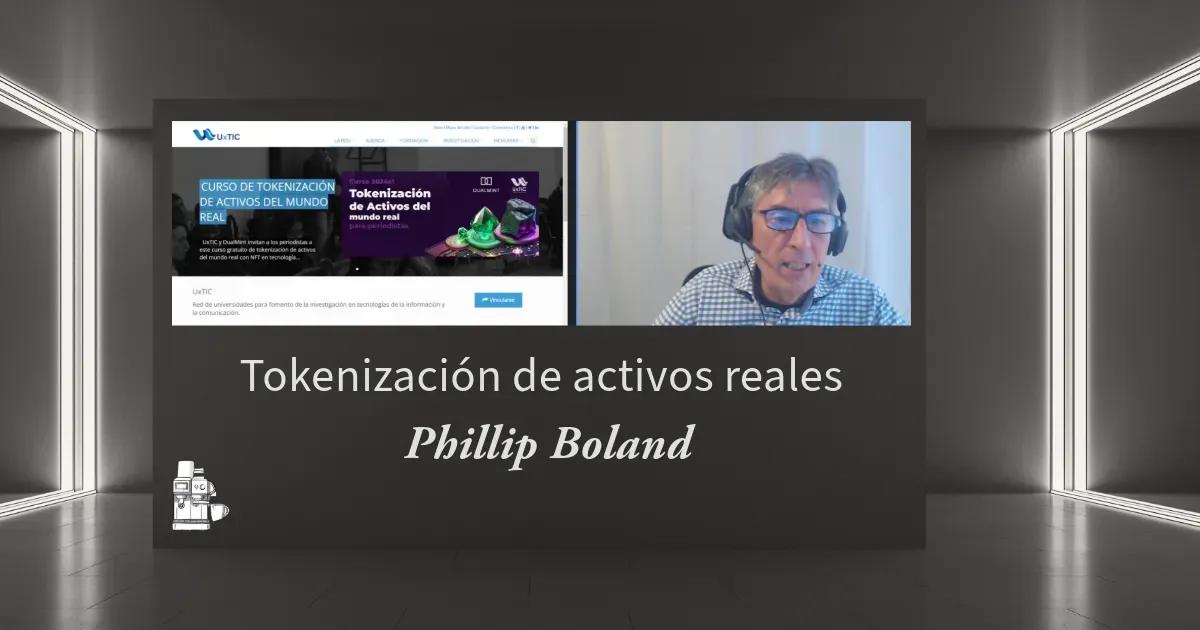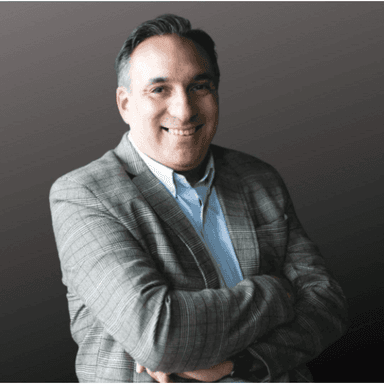Café Encuentro - Interview with Philippe Boland
Tokenization of Real-World Assets
In the fast-paced world of technology, the tokenization of real assets emerges as one of the most promising applications of blockchain. Topics such as legality, resource sourcing, ownership, ecological issues, corporate social responsibility, traceability, and many others have been and continue to be a natural necessity in certain markets and products. Since its inception, blockchain has referred to cryptocurrencies or crypto-assets, but like many other representative documents of value, it carries the factor of trust that is deposited in them. Some tokens offload fiduciary security onto a backing, called collateral, in other assets. For example, we find tokens that are backed by fiat currencies or traditional currencies, others backed by gold and minerals, and so on. In this case of backed tokens, which are still in a very nascent state, there are efforts underway in various countries and initiatives to promote the use of tokens based on RWA (Real World Assets) or products and assets from the real world as collateral to finance these projects.
In a close and enriching conversation, Philippe Boland, a pioneer in the blockchain field in Latin America, shares his vision on how this technology is transforming industries and creating new opportunities in the region, and how the formation of joint ventures between academia, businesses, and the government aligns objectives to address current needs for entrepreneurship, organizations, and sustainability goals.
Philippe Boland: A Visionary Who Unites Tradition and Technology
Philippe Boland is a reference in the adoption of blockchain in Latin America, leading projects that connect academia with industry. With a career that spans continents and a deep experience in implementing technological solutions, Philippe is at the forefront of a movement seeking to democratize access to goods and services across diverse sectors such as art, consumer goods, agriculture, education, and emerald mining.
Tokenization of Emeralds: Tradition and Technology United
One of the most innovative projects led by Philippe in Colombia is the tokenization of emeralds. This project, in collaboration with the Emerald Exporters Association, aims not only to facilitate the sale of these precious stones in international markets but also to ensure the authenticity and traceability of each piece.
The process consists of fractionalizing an emerald into multiple tokens, each representing a part of the stone. These tokens can be acquired by investors worldwide, who can then claim the entire emerald or sell their tokens in the market. This model democratizes access to luxury goods while introducing an unprecedented level of transparency in a historically opaque market.
Philippe explained that the success of this project largely depends on collaboration with a state lab that certifies the authenticity and characteristics of the emeralds. This certificate is recorded on the blockchain, ensuring that each token is backed by a real and verifiable asset. Furthermore, the project benefits from favorable regulation in the United States, where the logistics of distributing tokenized emeralds is managed, while minimizing shipping costs to any part of the world. Similarly, buying/selling of the tokens occurs on a platform with English capital based in Hong Kong that conducts KYC (Know Your Customer) or the process of certifying the identity of buyers and identifying the source of funds along with anti-money laundering and anti-terrorism controls.
In summary, this tokenization process of an emerald pilot program allows fragmenting the entry value, enabling more individuals to benefit from this type of business and profit by becoming primary buyers and then resellers when the emerald reaches the final consumption market.
Colmena DAO: Technology at the Service of Sustainability
Another highlighted project is Colmena DAO, an initiative that combines blockchain, the Internet of Things (IoT), and artificial intelligence to address critical issues in Colombian beekeeping. Each hive is represented by an NFT, allowing investors to acquire a stake in honey production and contribute to environmental sustainability.
Colmena DAO not only has a direct impact on agricultural production but also introduces an innovative model for corporate social responsibility. Companies and schools can acquire these NFTs as part of their sustainability programs, supporting local beekeeping while educating new generations about the importance of biodiversity and technology. Bees play a crucial role in the environment as essential pollinators for a wide variety of plants, including trees and crops. They facilitate plant reproduction by transferring pollen, resulting in the production of fruits and seeds. This process not only ensures the survival of numerous plant species but also sustains biodiversity and the health of ecosystems. Trees and plants pollinated by bees provide food and shelter to many other organisms, contributing to the stability and resilience of the natural environment. Moreover, pollination promotes forest regeneration, protects soil from erosion, and aids in carbon absorption, thus mitigating climate change. Without bees, ecosystems would face significant imbalances, affecting both flora and fauna, and ultimately humanity. By locating hives in specific areas, it can significantly contribute to the imported ecosystem. In this way, and through effective sustainability policies, businesses can acquire Colmena DAO tokens as compensation agents, just like carbon credits. On the other hand, tokens can serve as funding sources for such projects, contributing collaboratively while seeking a return on the increased production of hives.
Challenges and Opportunities in the Tokenization of Real Assets
Despite advancements, the tokenization of real assets faces significant challenges, especially in terms of regulation. Philippe mentioned that, although tokenization is possible, projects must operate outside the local market to avoid regulatory gaps and to facilitate and strengthen the application of technologies for organizations. This is exemplified in the case of emeralds, where the sale of tokens occurs on international platforms that possess the necessary controls and established processes for funding and acquiring the tokenized asset.
Furthermore, tokenizing assets raises questions about speculation and market value. Philippe emphasized the importance of ensuring that the total value of tokens does not exceed the real value of the underlying asset, a critical challenge for maintaining the integrity and viability of the market.
The Future of Tokenization in Latin America
The conversation with Philippe Boland made it clear that the tokenization of real assets is just the beginning of a technological revolution in Latin America. Projects like Colmena DAO and the tokenization of emeralds are not only opening new avenues for investment and economic development but also laying the groundwork for a more transparent, sustainable, and equitable ecosystem.
In a continent marked by inequality and lack of access to economic opportunities, tokenization offers a pathway to democratize ownership and participation in global markets. With leaders like Philippe Boland at the helm, the future of tokenization in Latin America promises to be as bright as the emeralds that are now traded on the blockchain.
This article is an invitation to reflect on the potential of blockchain technology to transform not only markets but entire societies. As Philippe explained, we are just scratching the surface of what this technology can achieve, and the opportunities to innovate and generate social impact are practically limitless.


Comments